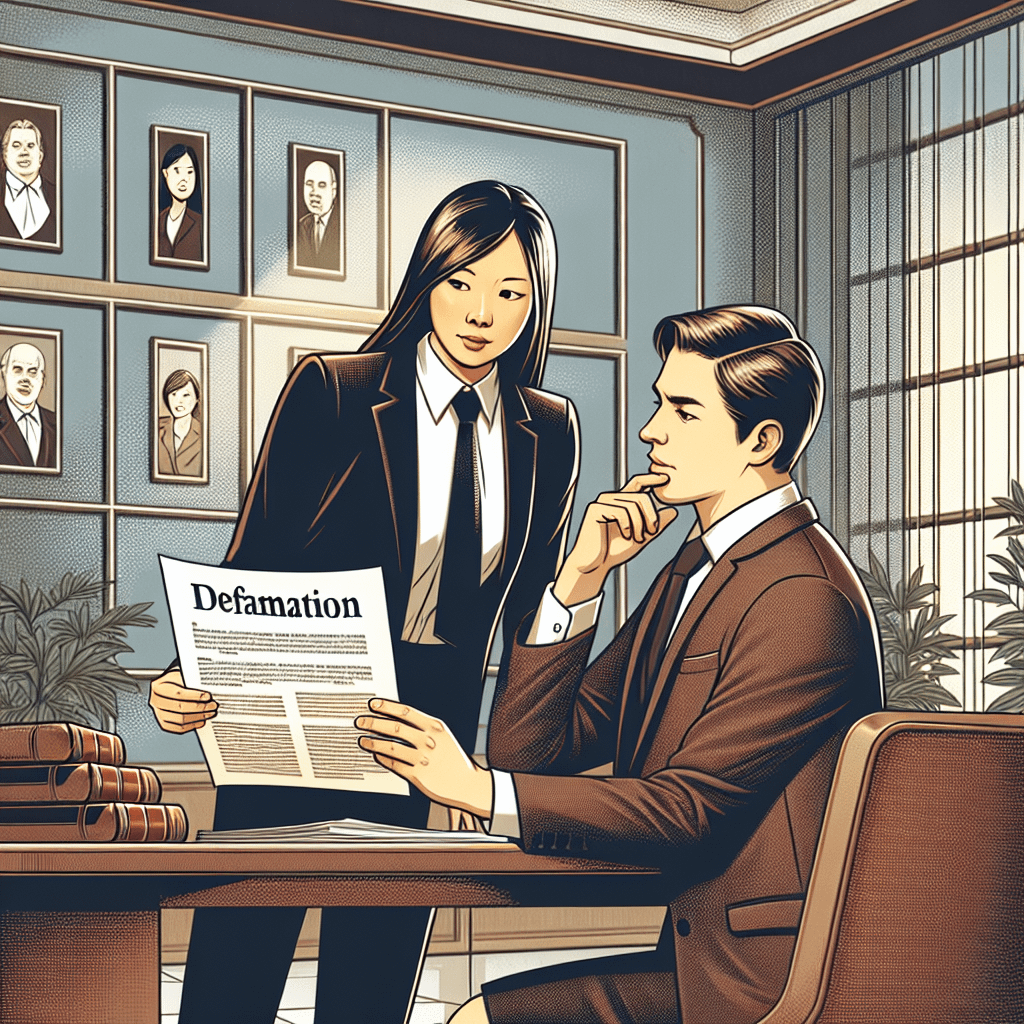Are you dealing with false rumors about you spreading online and worried about their impact on your reputation? You’re not alone. In today’s digital world, where information—and misinformation—can spread at the speed of a click, understanding your rights regarding defamation can empower you to protect your reputation.
What is Defamation?
Defamation, in simple terms, refers to the act of making false statements about someone that damage their reputation. There are two types: libel, which refers to written statements (including online posts or comments), and slander, which pertains to spoken statements.
Elements of a Defamation Claim
To successfully sue someone for defamation, generally, you need to prove:
1. A False Statement: The statement made about you must be untrue. Opinions, even if harsh, typically do not count unless they imply false facts. 2. Publication: The statement must be made to at least one person other than you. Online posts, tweets, or messages easily satisfy this criterion.
3. Injury: You must show that the false statement caused harm to your reputation, such as losing your job or suffering social embarrassment.
4. Negligence or Malice: The person spreading the rumor either didn’t bother to check the facts (negligence) or they intended to harm you (actual malice, a higher bar typically required if you’re a public figure).
Common Examples of Online Defamation
Imagine if a colleague falsely accuses you of stealing at work in a Facebook post. Such a statement could damage your professional reputation and possibly lead to losing your job. Another example could be a vlogger posting a video that falsely claims you were involved in criminal activities.
Tips Before You Sue
1. Document Everything: Keep records of the defamatory statements, including screenshots, URLs, dates, and any communications. 2. Think About the “Streisand Effect”: Sometimes, legal action can amplify the rumor instead of quashing it, drawing more attention to the false information.
3. Consider the Existence of a Difference between Opinion and Fact: Not every upsetting statement may qualify as defamation. For instance, if someone online says, “I think they’re a bad person,” this may be seen as an opinion rather than a false fact.
4. Explore Other Avenues: Sometimes, contacting the website or platform where the defamation occurred can result in the removal of the false content. Many social media sites have policies against defamatory content.
Potential Challenges
Suing for defamation can be complex and, at times, drawn out. Legal proceedings can be expensive, and you may not always recover these costs even if you win. Furthermore, identifying anonymous online users can be particularly tricky and sometimes impossible.
Talk to a Lawyer
Considering these complexities, it could be invaluable to talk to a lawyer before deciding to sue. They can help assess whether you have a strong case and advise on the best course of action. Some lawyers offer a free initial consultation, which can be a cost-effective way to start.
Conclusion
While the internet can sometimes feel like the Wild West, laws about defamation provide a way to protect your reputation from harmful and false statements. If you’re facing defamation online, understanding the basics can help you decide whether legal action is a viable and worthwhile step for you.
Anyone can be caught in the crossfire of false rumors online, but with the right information, you can navigate the situation and reclaim your reputation. Stay informed, think through your options, and don’t hesitate to seek professional legal advice if you need it.








